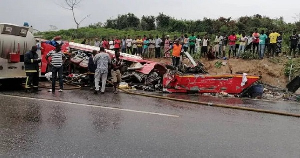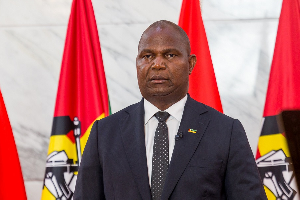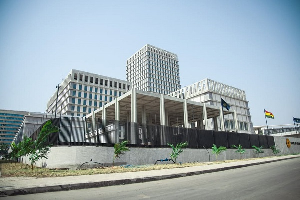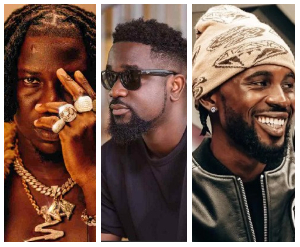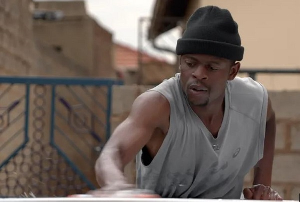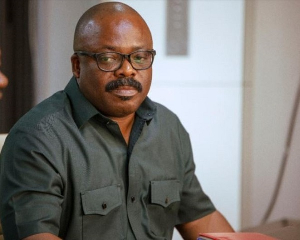By Dr. Michael J.K. Bokor
Wednesday, November 6, 2013
I open this opinion piece with the bold statement that good governance calls for teamwork and strategy!!
The diverse responses to how a Presidential Staffer (Stan Dogbe) and a Deputy Minister of Information and Media Relations (Felix Kwakye-Ofosu) reacted to concerns expressed by Alban Bagbin (Former Majority Leader and one of the three presidential appointees responsible for priority projects) about happenings at the Presidency have brought into sharp focus the role of the youth in national politics.
Are the youth really prepared to do national politics in a manner more congenial for national development than what the “old folks” have demonstrated over the years? Obviously, critical comments suggest that the “old folks” have failed Ghana; hence, the need for them to give way to the youth, apparently because “the future belongs to the youth”.
The tension is real and needs to be appreciated for all that it is worth to national and local politics.
The need has been expressed for Ghanaian youth to step forward and participate actively in national and local politics. The common saying is that the future belongs to them. But from what has happened so far in the appointment of the youth to positions of trust in the various governments, especially the Mahama-led one, can we rest assured that they are really up to the task of nation-building?
Some critical voices have been heard wondering whether the youth are really worth giving the exposure and responsibility as has been the case over the years in Ghanaian politics.
The Great One, Osagyefo Dr. Kwame Nkrumah recognized the power of the youth and constituted his CYO (Committee of Youth Organizations) as the livewire of his CPP. The youth were given responsibilities to ensure the survival of the political kingdom. Those of us too young at the time or not born to participate in the activities of the CYO got to know later on how the CYO functioned to promote Nkrumah’s political agenda—some even betraying their own kith and kin or parents to be sacrificed on the altar of Nkrumah’s socialism and zero tolerance for dissension. When Nkrumah fell, the CYO fell too; but the spirit of the youth in national politics didn’t die out.
We were to see a clear demonstration of it under Rawlings’ AFRC when university students virtually determined the run of affairs with their “student power” and the “let-the-blood-flow” mantra. Earlier, though, the National Union of Ghana Students (NUGS) had proved to the Acheampong government where naked power lay.
Let the NUGS take a stance against the government of the day and all hell will break loose, putting the President and his henchmen on tenterhooks. Student activism has to date been recognized as an integral part of Ghanaian politics. And those who eventually enter mainstream national are former student activists.
The power wielded by the youth is indisputable. Even, the Christian Bible recognizes it and enjoins all to serve God with all their might and substance in their youthful days. Any leader who disregards the potency of the youth does so at his own peril. It is a universal reality.
In Ghana, Rawlings confirmed the potency of the youth when he shot his way into the limelight at age 31 on June 4, 1979. What the AFRC did under his command cannot be glossed over. So also is what happened when he returned to power to rule Ghana for almost 20 years, bringing on board diverse segments of the Ghanaian population, especially the youth.
Those who constituted the bulwark of his grassroots structures (People’s and Workers’ Defence Committees, later to be turned into the Committees for the Defence of the Revolution) were the youth. All over the country, they did things as they deemed fit, regardless of whatever impression they created or the scars that they left behind in the minds of victims of their unconscionable activities. Ask those who still blame Rawlings for the excesses of his rule and you will be pointed to those so-called “revolutionary” elements. A lot of them are still hanging on as professional politicians.
I remember very well what the late Adali-Morty, then Secretary for Information, once said: Now that the elderly have been brought into the government, there is some sanity.” He didn’t last long at post after making that statement.
But the import of his claim shouldn’t be lost on us. He sought to imply that the youth operating in the Rawlings administration were wayward and mindless of the far-reaching consequences of their acts of omission and commission. Probably, in hindsight now, we may give him some credit.
Undeniably, the visibility given some youths to participate in government business is being abused.
Rawlings’ characterization of them as “babies with sharp teeth” and “evil dwarfs” says much to inform us that there is a lot wrong with the manner in which the youth conduct business in officialdom. Rawlings himself may be regarded as an adult with sharp teeth and dangerous claws by his political enemies; but the truth remains that his many years in power paved the way for the youth to taste political power for long. His successors have built on that foundation, each period characterized by its own ups and downs.
Against the background of the corpus of youth serving in the Mahama administration, do we have any good cause to cringe at how they are conducting affairs? Is there anything they are doing that others before them (in previous administrations) didn’t do? Why should we be concerned or alarmed at what is unfolding?
We are particularly concerned at the new trend in which the youth construct themselves as power brokers and act as potentates. We may not be in a position to deal directly with them at the seat of government (local, regional, or national) but we have had the benefit of complaints from others to form opinions.
Of course, some of them have had the effrontery to take notable public figures to the cleaners over the slightest issue of dissension. Rawlings has had his “unfair” share of the tongue-lashing and best knows how to react to their verbal attacks. Others too have their own experiences to guide them in how they relate to these youths now in the limelight.
The unfolding controversy between critics of President Mahama and those defending his leadership style brings to focus the reality of the Ghanaian situation. And those defending President Mahama are the youth. We hear that they are positioned all over the place and take calls that are meant for President Mahama. They determine what to pass on to President Mahama or what to exclude from reaching his door-steps and ears. It’s a huge scenario of the Panopticon manifesting in contemporary Ghanaian politics!!
The good thing about the experimentation going on is that President Mahama wants to give the youth the space they need to participate in government business in order to gain some experience, grow up, and take the mantle of leadership as well-groomed and prepared adult politicians.
I have insisted all along that the NDC or any other party, for that matter, must establish structures and mechanisms for grooming future leaders from within. What President Mahama has done by giving the youth some exposure and responsibilities on this score is in the right direction, even if their inadequacies are creating credibility problems for them.
Unfortunately, though, it seems these youthful ones have mistaken the exposure being given them to mean an endless opportunity for self-aggrandizement and wanton “show of power”, especially by regarding themselves as power brokers by virtue of their being close to the President. I hear Stan Dogbe is responsible for the daily briefings that the President needs on national affairs while Randy Abbey is at the residence, picking calls directed at the President, answering them and determining what should go beyond his power-gate to that of the President. No need to say anything more about this Randy Abbey.
But in their overzealousness to catch the master’s eyes and ears, they leave ugly traces behind. These youthful “politrickcians” have failed to recognize the reality behind that exposure and are so wrapped up in their own self-importance as to become a liability at this stage.
I won’t blame President Mahama for this experiment. He is genuinely trying to do what he thinks will serve useful purposes. Now that we’ve begun seeing the negative part of these youthful elements, it is imperative for him to pull the reins to restore discipline and normalcy in their activities.
I don't intend to suggest that what the so-called “seasoned politicians” do is right and unquestionable. Not at all, clearly because these “old folks” are still carrying along their cupboard of skeletons. They have set unenviable records and tainted Ghanaian politics with greed, mischief, and many other negative traits for which they stand condemned.
But those youthful ones that President Mahama has taken on board must learn to tread cautiously so they can learn the useful lessons of grooming before baring their teeth at those they consider as an affront to the fount of authority.
There is a lot of learning to do and they must be patient and tolerant enough to do so before positioning themselves as forces to reckon with. And those appointing these youthful ones and investing them with so much power and authority need to hasten slowly lest they end up hamstringing themselves. It’s a learning and tortuous process in our case and everyone must be humble enough to know how to cut his/her steps so government business can be run on the basis of tact, trust, confidence, and the genuine desire to use political power to solve national problems and relieve Ghanaians of their age-old existential problems.
Those criticizing President Mahama aren’t monsters to be feared or destroyed but people who wish that the political power given the NDC by the electorate will be used to move Ghana forward so the people can live their lives in decency. The people know full well that this world is not their home, which is why they look up to those to whom they entrust their mandate at the elections to use that mandate wisely to serve their purposes. And that is why those who criticize the President should be tolerated for redirecting attention to the reality undergirding that mandate.
The youth must count themselves particularly lucky to be part of the agenda for national development. Otherwise, if they misuse that mandate today, they will wake up tomorrow in their dotage to regret ever being born to live in our part of the world.
I shall return…
• E-mail: mjbokor@yahoo.com
• Join me on Facebook at: http://www.facebook.com/mjkbokor
Opinions of Friday, 8 November 2013
Columnist: Bokor, Michael J. K.


